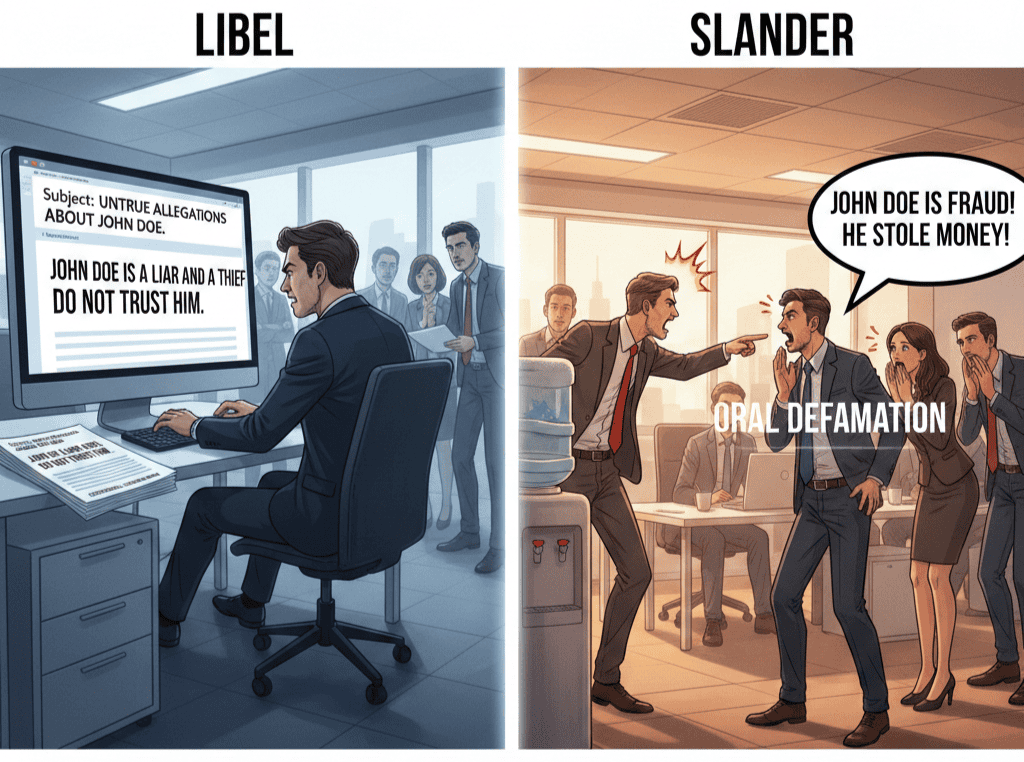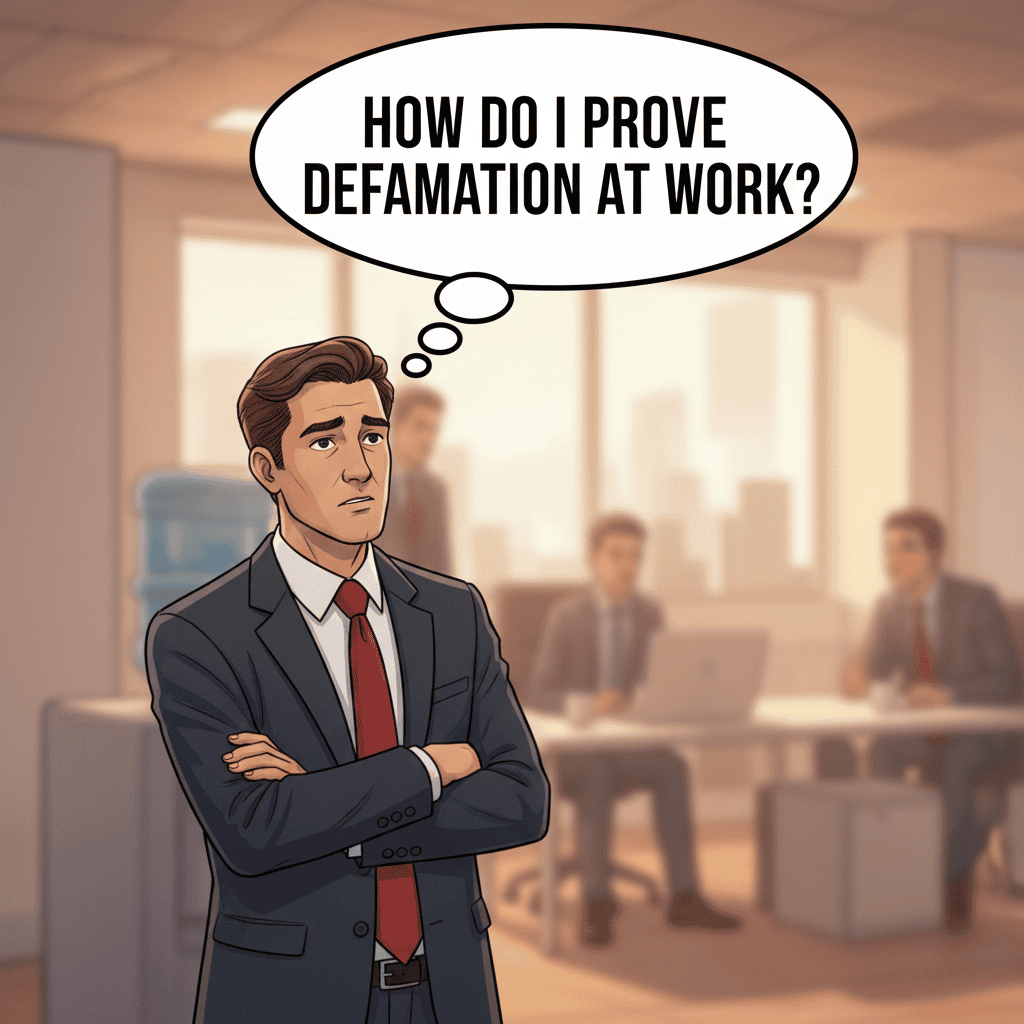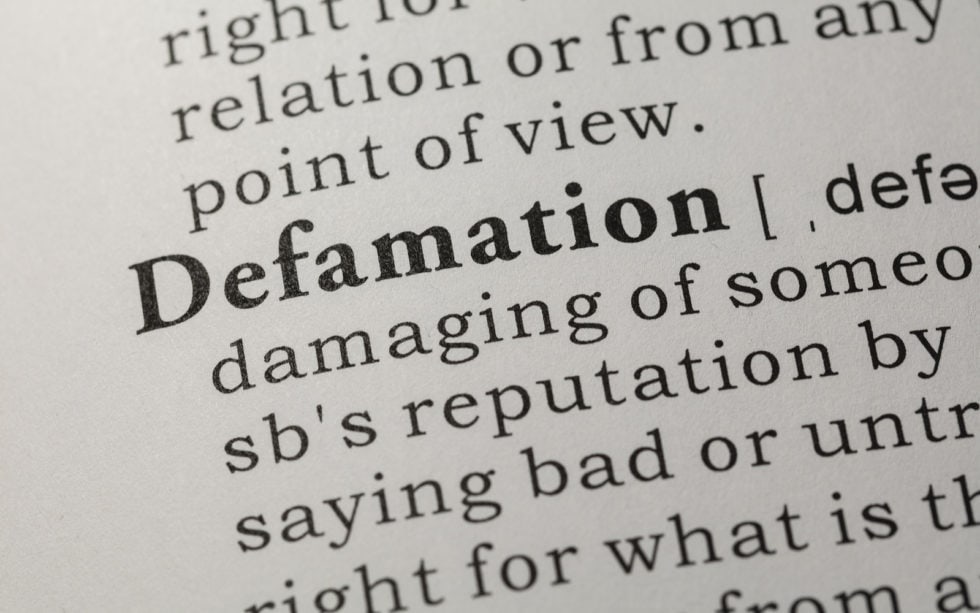Attorney advertisement by Edwin Aiwazian of Lawyers for Justice, P.C., headquartered at 450 N Brand Blvd, Glendale, CA 91203
Attorney advertisement by Edwin Aiwazian of Lawyers for Justice, P.C., headquartered at 450 N Brand Blvd, Glendale, CA 91203
How Do You Prove Defamation of Character at Work?
Defamation of character at work can be damaging, stressful, and difficult to navigate. False statements may impact an employee’s reputation, career advancement, or job security. Workplace defamation can take many forms, from false rumors to damaging written accusations.
If you find yourself asking, “How do you prove defamation of character at work?”, this guide provides a general overview of what may be involved in evaluating a potential claim involving slander and defamation of character in the workplace.
Because defamation cases are highly fact-specific, outcomes vary. The information below outlines common legal considerations but does not guarantee any particular result.
What Is Defamation of Character in the Workplace?
Workplace defamation generally refers to false statements of fact made about an employee that may harm their reputation. These statements may be made by supervisors, co-workers, HR personnel, or even third parties such as customers or vendors.
In general, a statement may qualify as defamation when:
- The statement is false
- It is presented as fact, not opinion
- It is communicated to someone other than the employee
- It causes reputational, professional, or economic harm
Employees dealing with slander and defamation in the workplace may benefit from documenting the conduct and seeking legal guidance.
Libel vs. Slander in the Workplace

Understanding the difference between slander and libel in the workplace may help determine what evidence is needed.
Libel (Written Defamation)
Libel involves false written or recorded statements, including:
- Emails or internal messages
- Text messages or chat logs
- Performance reviews
- Written complaints or reports
- Social media posts
Because written statements can be preserved, libel claims are often easier to document.
Slander (Spoken Defamation)
Slander at work involves spoken false statements, which may include:
- Verbal accusations
- False rumors shared among employees
- Comments made during meetings
- Statements made to clients or other employers
Workplace slander can be harder to prove and often relies on witness testimony, notes, or timelines.
Examples of Slander in the Workplace
Understanding common examples of slander in the workplace may help employees recognize when false statements cross a legal line.
Examples may include:
- Falsely accusing an employee of theft or fraud
- Claiming an employee engaged in harassment or misconduct when untrue
- Spreading false rumors about an employee’s professionalism or ethics
- Telling others that an employee was fired for cause when they were not
When these statements are false and harmful, they may form the basis of a claim involving slander and defamation of character in the workplace.
How Do You Prove Defamation of Character at Work?

The burden of proof typically rests on the employee bringing the claim. Proving slander and defamation in the workplace often requires multiple forms of evidence.
To establish defamation, an employee may need to show that the statement was false, published, defamatory, unprivileged, and caused harm.
1. The Statement Was False
A defamation claim cannot be based on true statements. Employees may need documentation or testimony showing the statement was factually incorrect.
2. The Statement Was Published
Publication means the statement was communicated to someone other than the employee, such as HR, management, or co-workers.
3. The Statement Was Defamatory, Not Opinion
Opinions are generally protected, but false statements presented as facts may be actionable.
4. The Statement Was Not Privileged
Some workplace communications are protected by privilege. However, privilege may not apply if the statement was shared recklessly, maliciously, or beyond those who needed to know.
5. The Statement Caused Harm
Harm may include lost job opportunities, denied promotions, reputational damage, or financial loss. Certain statements may qualify as defamation per se, where harm is presumed.
Gathering Evidence for Workplace Defamation Claims

Employees facing workplace defamation may want to gather:
Written Evidence
- Emails, texts, or chat messages
- Screenshots
- Performance evaluations
Witness Information
- Names of individuals who heard the statements
- Dates, times, and locations
Employment Records
- Prior positive reviews
- Records showing lost opportunities or discipline
Keeping a written timeline may help preserve details.
Filing a Workplace Defamation Claim
Because slander and libel in the workplace can be legally complex, employees may benefit from consulting an employment attorney who can review evidence, assess privilege issues, and explain potential legal options.
For additional legal background, you may find it helpful to review:
You May Want to Speak With a Workplace Defamation Attorney

If you believe you are experiencing defamation of character at work, you may want to contact Lawyers for Justice, P.C.. Our team may be able to assess your situation and explain potential legal options.
Call 818-JUSTICE or complete the contact form.
Frequently Asked Questions About Workplace Defamation
What is workplace defamation?
Workplace defamation involves false statements made at work that harm an employee’s reputation. It may include both slander and libel.
What is the difference between slander and libel in the workplace?
Libel refers to written defamation, while slander refers to spoken statements.
Can I sue my employer for slander at work?
Possibly. Whether a claim is viable depends on the facts, evidence, and applicable laws.
What should I do if I’m experiencing workplace slander?
Document the statements, preserve evidence, and consult an employment attorney to understand your rights.
Attorney advertisement by Edwin Aiwazian of Lawyers for Justice, P.C., headquartered at 450 N Brand Blvd, Glendale, CA 91203
Think you deserve justice?
-
Get a Free Case Evaluation
-
Retain Service with No Upfront Cost
-
Get the Justice You Deserve
-
No Win, No Pay









